Person Trolls Anti-Vaxxers By Comparing That Carseats Should Be A Choice Too And People Are Loving The Logic
Despite efforts from social media sites such as Facebook, YouTube, and Pinterest, misinformation from anti-vaxxers continues to flood the internet. If these media giants can’t block the spread of #FakeNews then what can the rest of us do to prevent other people from being convinced of their flawed logic? Some people have taken the approach of trolling them with hilarious memes or comments, while others have shared their own personal experiences with anti-vaxxers.
One social media user decided to use logic to shut down anti-vaxxer rhetoric, using a brilliant car seat analogy that shows just how silly their arguments are.

Image credits: bronwynannh
The spread of misinformation and fear of vaccine has become so widespread that the World Health Organization has named “vaccine hesitancy” – the reluctance or refusal to vaccinate despite the availability of vaccines – among the top 10 threats to global health for 2019. Globally measles has seen a 30% increase.
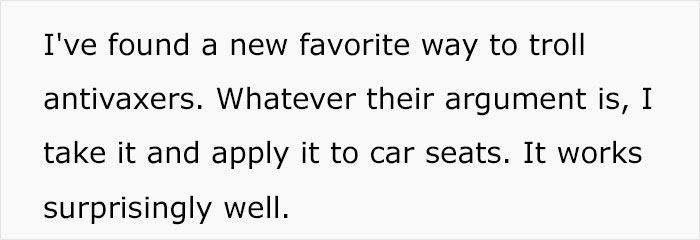

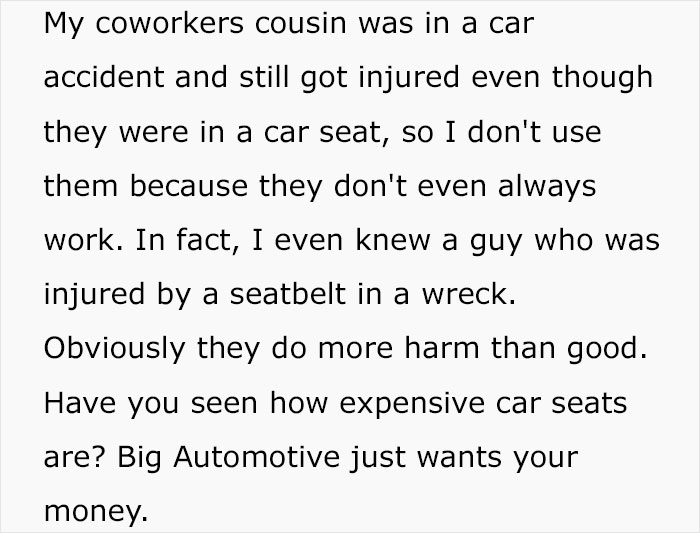

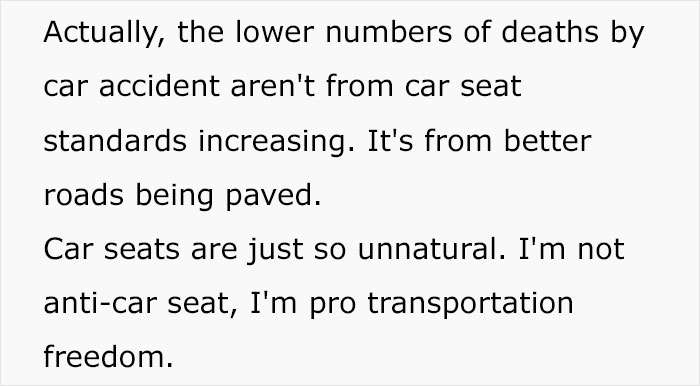
People thought the argument was hilariously perfect

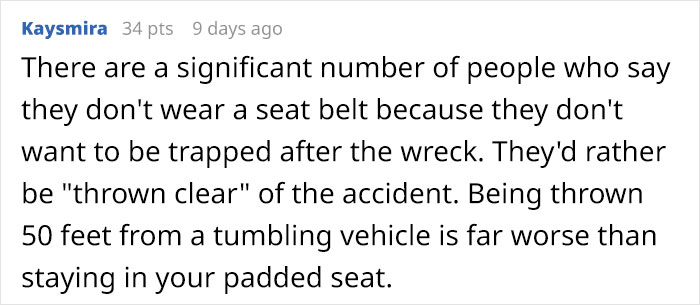

So why are parents choosing not to vaccinate their kids with a rising measles epidemic worldwide, and Google at their fingertips? According to a report from the Royal Society for Public Health (RSPH) half of all parents with young children have been shown anti-vaxx misinformation somewhere on social media. These ads falsely link vaccinations to autism.



While some parents are looking to the internet to fuel information about their unfounded anti-vaxx theories, the generation that has to pay for their parent’s mistakes is also turning to the internet to find information how to protect themselves. The legal age of medical consent is 18, but it hasn’t stopped some underaged kids from turning to places like Reddit to ask for advice.



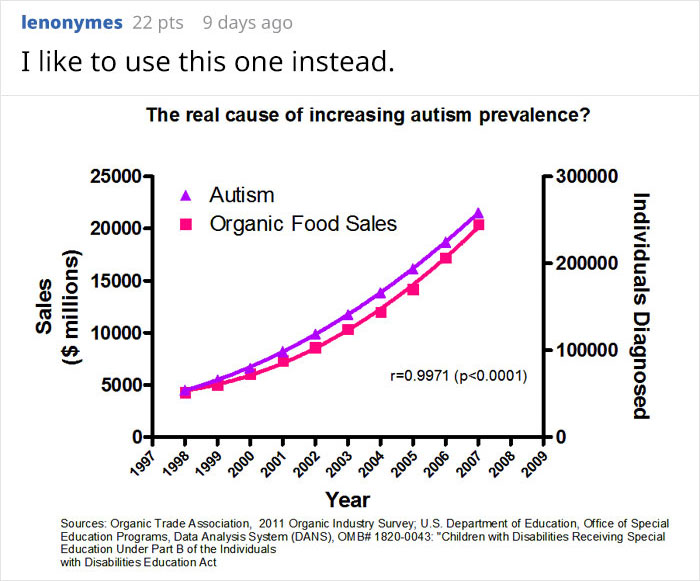

This health issue has led to some countries to start creating laws and legislation that will force parents to vaccinate their kids, the same way there are car seat laws in place. According to the Center for Disease Control and Prevention: “In the United States, 723 children ages 12 years and younger died as occupants in motor vehicle crashes during 2016, and more than 128,000 were injured in 2016.”







While booster seat and seatbelt laws vary from state to state, there is data that proves that booster seats are more effective in reducing minor injuries in young children than seatbelts alone. The CDC also reported that “Of the children ages 12 years and younger who died in a crash in 2016 (for which restraint use was known), 35% were not buckled up.”


by Karolina Wv via Bored Panda - Source

No comments: